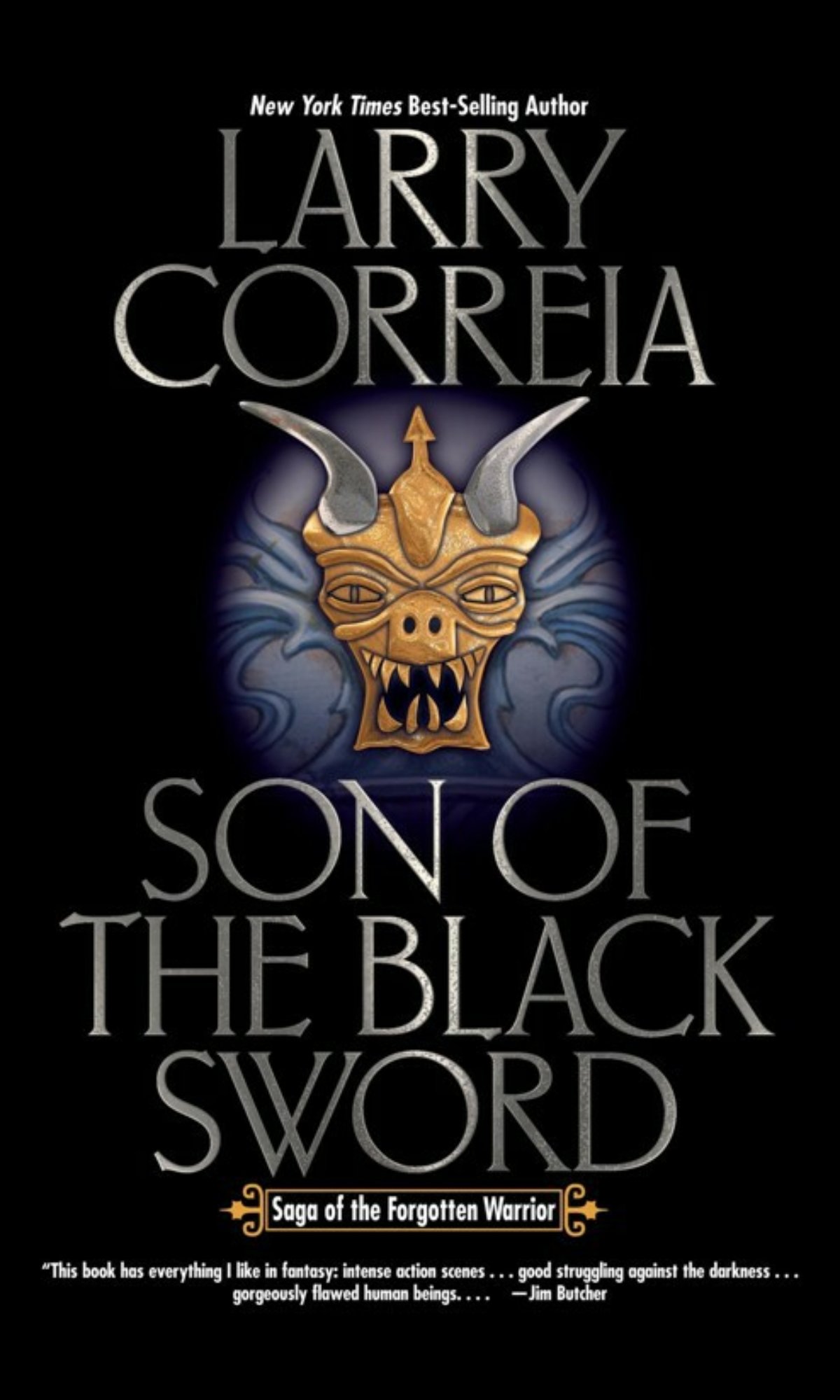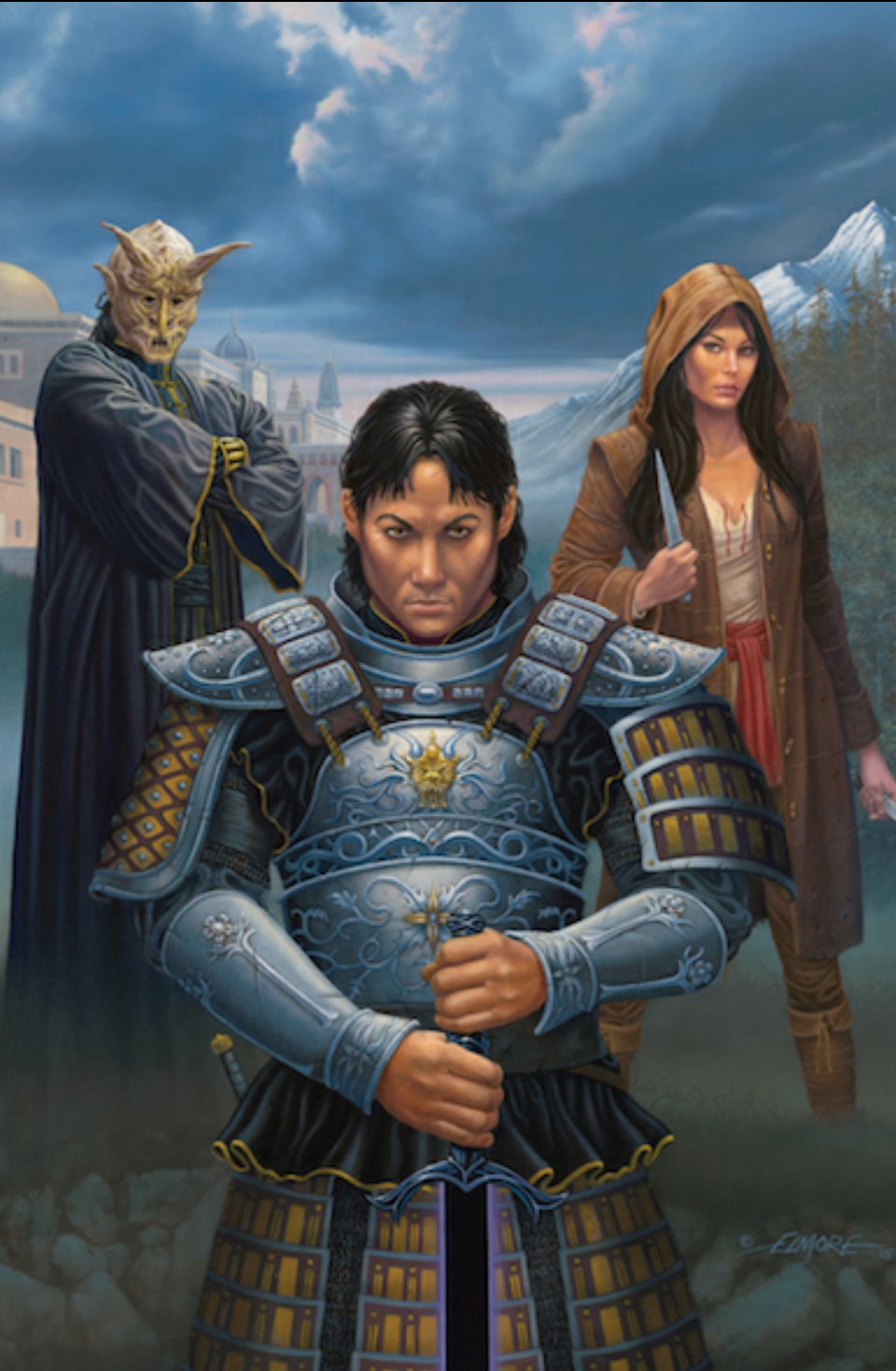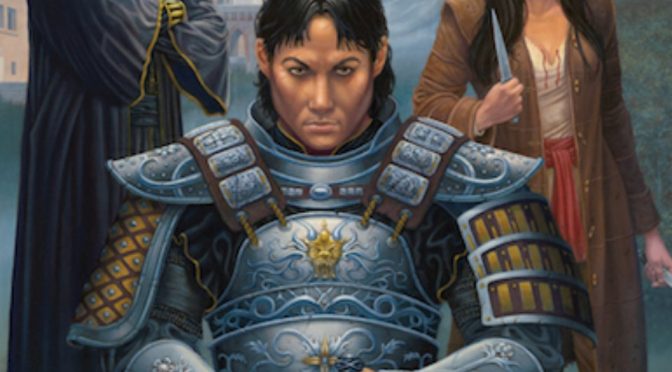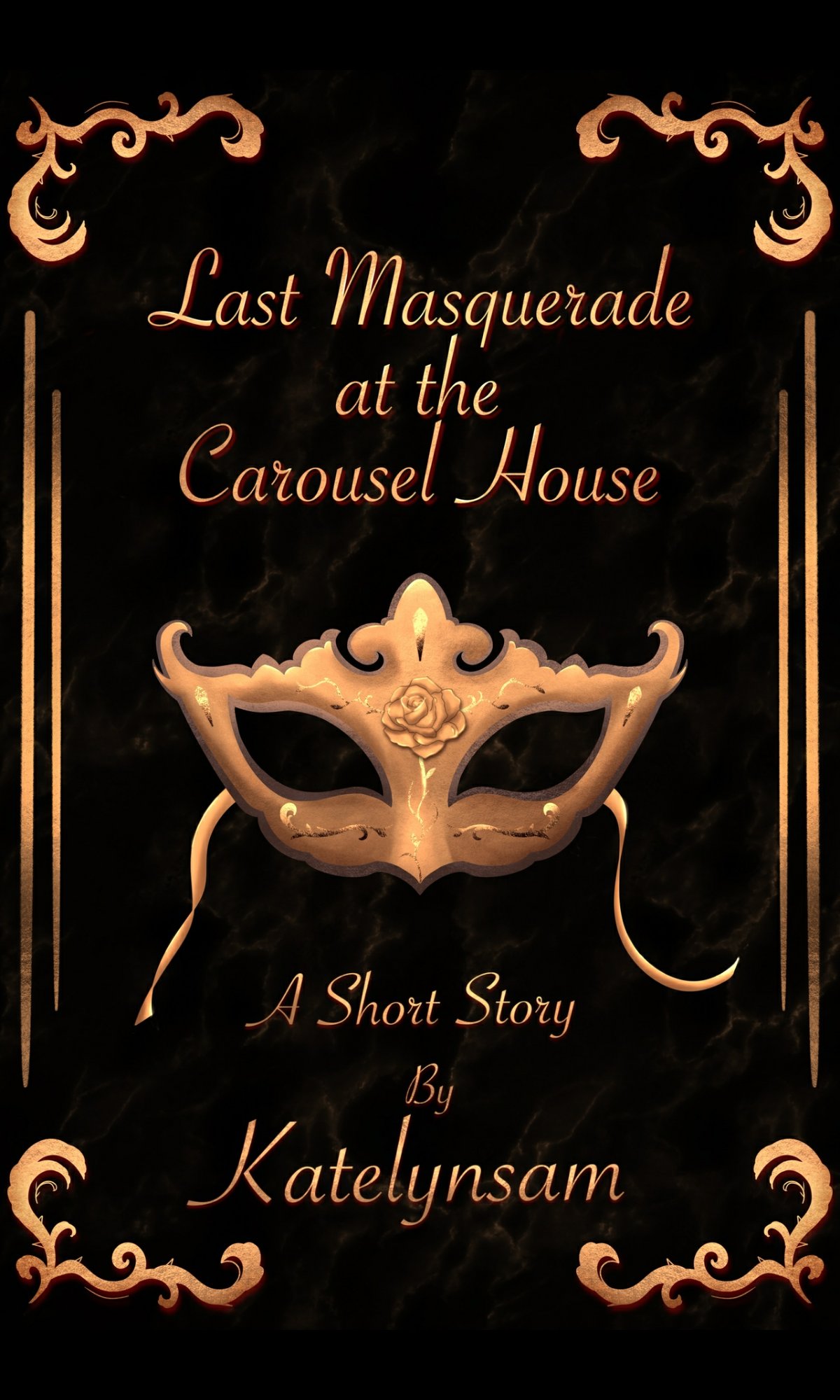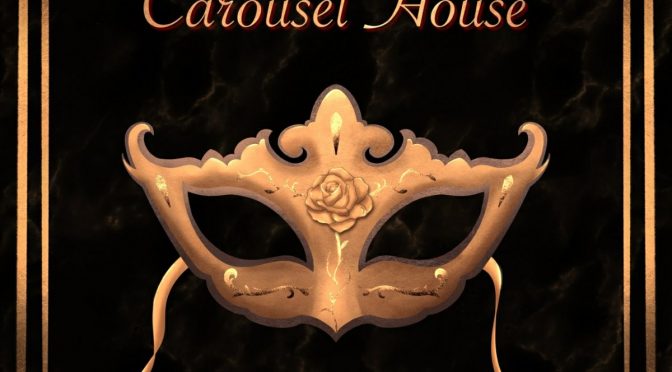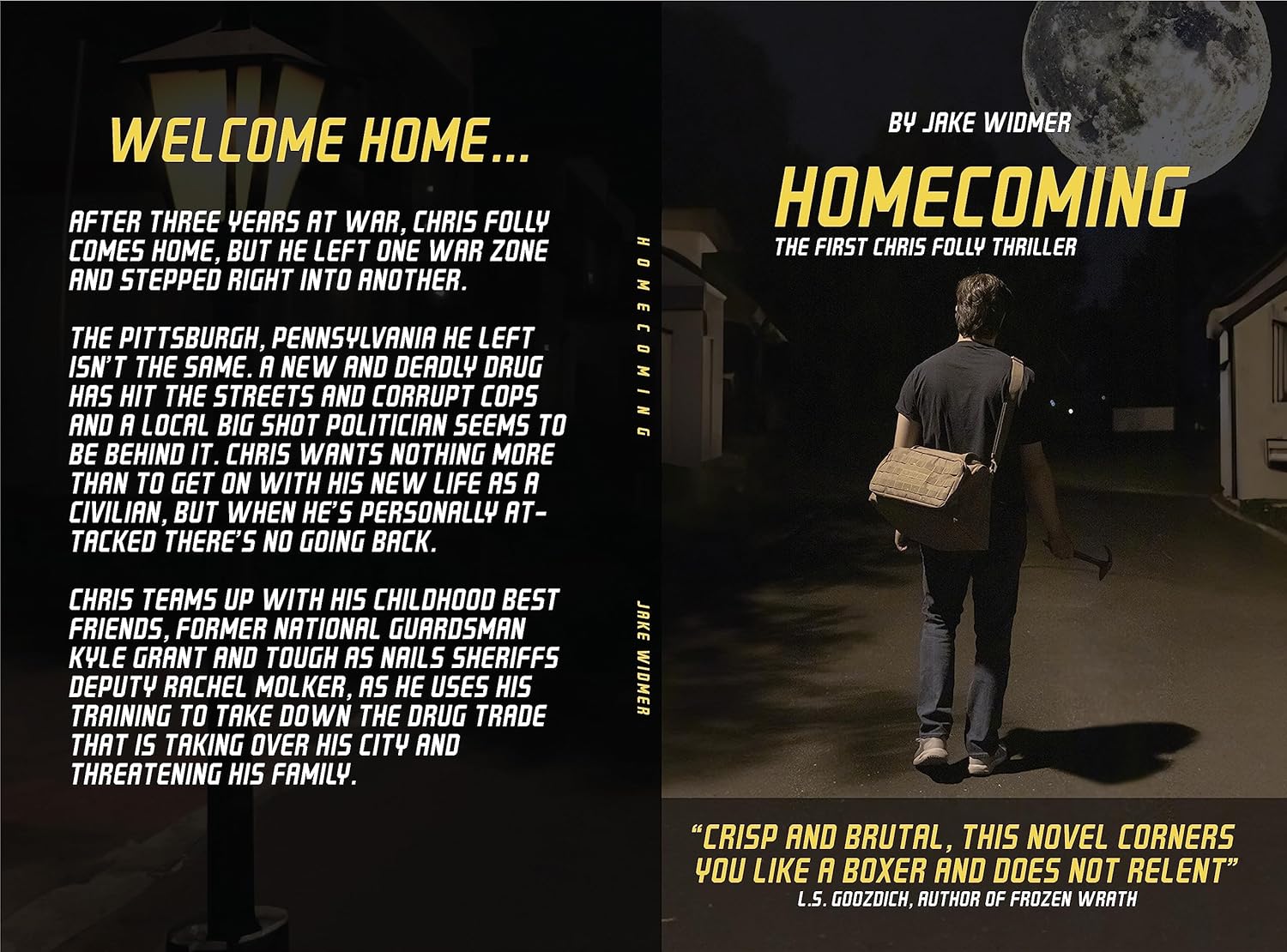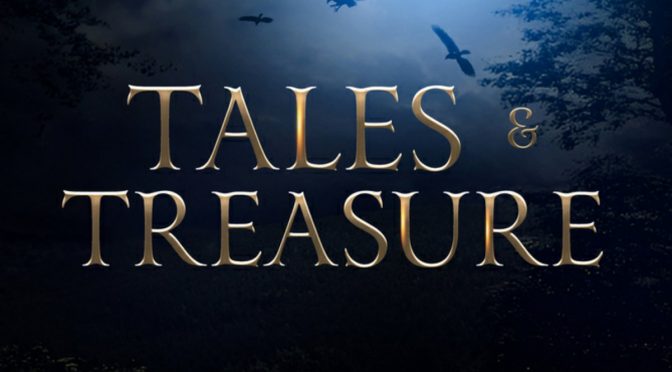A Q & A with the Infamous Reviewer, Gio🦀
Gio 🦀 has been reviewing on Virtual Pulp for a little over a year now. He’s a prolific reviewer with a strong work ethic and sometimes eclectic tastes. He’s got his own fiction project in the works right now. Maybe this is overdue, but I think it’s a good idea to help his audience get to know him better, and find out about what he’s up to lately.
MACHINE TROOPER: First of all, you are a blessing to the writers of the world. I wish there were more readers like you out there and I probably speak for most of the authors you have reviewed. Seeing as how you’re not just a prolific reader but a prolific reviewer, and an honest one at that (so honest, you won’t even accept free review copies), I’m obligated to try figuring out what makes such a rare and selfless reader tick.
So what set you on this mission?
🦀 Honestly, it comes down to upbringing and my predisposition to listening to a good story being told. From a very young age my mother would often drop me off at my grandparents’ to go to work while my father was out at sea in the Navy, and my grandma would read me books that ranged from Homer to the Brothers Grimm. Those afternoons exposed me for the first time to the magic of storytelling. As I grew up, my hunger for discovering books that would capture my imagination just grew exponentially. When we studied Homer in school I already knew about The Iliad and The Odyssey as much as our teacher did.
Now with social media and a platform my purpose really is kinda the same: find that next book, that next story that stirs up my imagination.
MACHINE TROOPER: Again, glad to have you here.
Since you started reviewing on Virtual Pulp, the fantasy category has exploded in weight. Is that a favorite genre that you seek out more than others? Is it that most of the authors who contact you for reviews write in that genre? Or something else?
🦀 Fantasy is obviously what I read most but also perhaps the most popular genre in fiction literature currently. Most of my review requests I receive are for fantasy novels. Of course I have other reading interests (Jane Austen; Agatha Christie, to name a couple), but for the most part fantasy is obviously my main thing.

MACHINE TROOPER: It kinda’ looked that way to me.
You’ve read fiction from some of the legends in literature, as well as plenty of newish indie fiction. Have you noticed any general trends in the newer fiction–common strengths, weaknesses? Common or overused tropes?
🦀 I think a lot of new authors get stuck in a rut due to the bombardment from social media’s not-so-subliminal messages. It used to be that an author would draw inspiration from dreams, from traveling, from first hand experiences (or from those of others). Now the process is to pick up what’s already been written, take a few elements from this book and that book, blend them all together, and hope people will like the end result.
One of the most common overused tropes is that of having some kind of powerful trinket (amulet, stone, gem, sword, crown) and making it all about who can get their hands on it first. This trope has been used and abused to no end.
The strength in modern writing is the obvious instant access to information that writers have available, however that technical advantage is also partially responsible for the lack of original content. Writers used to draw inspiration from real-life experiences, from traveling, from having to stay at old motels in the middle of nowhere. They didn’t go online to see what was trending that day before writing their stories, if you catch my drift.
MACHINE TROOPER: Yup. There’s so much hopelessly derivative drivel out there now. Most of my creative efforts were derivative when I was a kid; but as you mature, you notice real life has so much inspiring experience–as you pointed out.
How do you decide what to review next?
🦀 I try to go in order of request placed, but truthfully sometimes I make exceptions depending on some factors. There are writers who request a review but in addition to that they want to speak to me about their books and depending on what they say I might take their books and move them up the queue because again, it goes back to me first and foremost searching for that story that is unapologetically original and written in such a manner that is unique in its own way.
MACHINE TROOPER: If you were to guesstimate, what proportion of books do you read because the author requested a review, versus how many you choose all on your own?
🦀50/50
MACHINE TROOPER: Do you still read any tradpub fiction? If so, who?
🦀 Not current tradpud fiction. I read a lot of classic Agatha Christie, Jane Austen, Lord Dunsany, Poe, and Lovecraft for the most part, when I’m not reviewing indie books.
MACHINE TROOPER: What are some of your favorite things to experience when reading a book or watching a movie? How have authors or directors managed to really ramp up your enjoyment of a story? Examples?
🦀 I like to expect the unexpected and unexpect the expected. What I mean by that is that I want to read stories and watch films that feel organic in their plot development and not just an amalgamation of previous existing stories and tropes blended together. I want to see writers disassociate their minds from how we communicate on social media and write in ways that are unique to their work (unless of course the story is about this world in present time).
Writing should be an art form not unlike singing, for example. Do singers sing like they talk? No. Same with writing. Don’t write like you post on Instagram or X. Make it an art form.
A good example of this is the last book I reviewed by Robert Mortell: Tales & Treasure. Though the book is not perfect in some aspects, Mortell seems to get that it’s time to move on in the fantasy genre and experiment with new concepts. The hunt for the crown in his story is just a facade, and even the characters in it know it. So the story is no longer about “Who shall find the crown shall have infinite power” but the hunt for this trinket becomes crucial for the characters/plot developing in ways that are fresh, compelling, and fascinating.
MACHINE TROOPER: Simply put, then: fresh narratives not built around a formula.
Do you read blurbs? I ask because they can be challenging to write and so many of them are bad. Can you generalize for us what elements in a blurb make you want to read a book (and conversely, what turns you off or makes it fall short, if you like)?
🦀 I do read blurbs and then I regret it! LOL! Honestly most blurbs today only make me feel like I should probably skip that book. I know it is hard to write blurbs that are effective without giving away too much of the story, but (sorry, have to mention him again) Rob Mortell proved that you can write blurbs that make you go like: “I gotta read this book now!” So Rob ,to me, also sets an example that there can be ways to write blurbs that are effective and intriguing. Is it an easy task? Absolutely not, but it’s doable.
MACHINE TROOPER: Remember that proposal you made to Iron Age Media? Could you reproduce it here for the blog followers?
🦀 Basically I DM’ed ‘The King’ with a proposal of featuring my book reviews on his zine but never got a response. I know he read it, but that’s water under the bridge.


MACHINE TROOPER: Now tell us if you’re ever going to do that. If not, why not?
🦀 Michael has a new book coming out soon. I’ll wait for that to release and do an interview with him.
MACHINE TROOPER: Thanks for answering those questions. Now let’s discuss your own current fiction project.
First of all: how and why were you motivated to tackle this subject matter in your first foray into fiction writing?
🦀 I was initially (and only partially) inspired by the modern feminist movement. But eventually the concept evolved into the creation of super Amazonian warriors rather than just a bunch of women who want to be like men. As more defined characters began to form in my mind I let the concept stir whichever direction it chose, organically.
MACHINE TROOPER: Most work that turns out to be worthwhile does take some surprising turns from what the writer originally envisioned.
Does the setting of this story take place on some version or alternate of Earth?
A: The setting is 100% pure fantasy world from my imagination, taking inspiration from The Iliad by Homer to Solomon Kane by R. E. Howard and everything in between. I think you may also find traces of E. R. Burroughs and H. P. Lovecraft here and there.
Oh and there will be mystical beaches, too. The most mysterious, enchanting beaches populated by not-too-friendly crustaceans!
MACHINE TROOPER: Nothing against Tolkien, but it’s always nice to discover people who understand that good literature existed before he came along.
Are you planning to eventually publish this story?
🦀 First of all I want to reiterate that everything that you read in Jerimath and Varian (and in the upcoming novel Scars) is simply the result of my ‘therapy program’. These characters and their stories have been living rent-free in my head for almost a year now, and I needed to find a way to let them out. This is therapy for me. So I decided to write down everything my imagination was creating in my sleep. I really don’t care what the ‘critics’ may think of it nor am I trying to be a ‘writer’ in the sense that I’ll be constantly thinking of what to write next. I’m writing these stories and characters simply because they came to existence through my imagination in my dreams and I really needed an outlet for my own mental health’s sake.
Having said all that, a long-format novel is also in the works, in cooperation with another writer, Jerimath and Varian providing just a glimpse into this fantastic world. With professional editing/proof-reading I would like to perhaps first make this short story available for free and then add it as a bonus to the long-format novel that is currently under construction.
MACHINE TROOPER: So this part is just you; but the full-length novel will be co-written with Fredo McBoxhead.
How did you come up with the term “Agogex”?

🦀 The term was inspired by Agoge, a military program/training system in ancient Sparta. It was kinda fitting, given the military nature of this caste of women. Partial credit goes to Scars co-writer James for coming up with that idea.
MACHINE TROOPER: Who are the “Aratex”?
🦀 The Aratex are the ‘mind’ of the nation of Carriala (whereas the Agogex are the ‘arm’ of Carriala). Aratex is a caste of men picked at birth to basically become eunuchs and fulfill vital roles as statesmen, lawmakers, scientists, architects. They will make an appearance in Scars, the long-format story I mentioned earlier, which will be mostly written by co-writer James.
MACHINE TROOPER: Jeez, you make it hard not to draw parallels between this and Current Year geopolitics.
You’ve been borderline-obsessed with crabs since you reviewed that one RVM story. Your characters even refer to “the Holy Crab” in this book. What is the deal with you and crabs?
🦀 I wouldn’t say just borderline obsessed (LOL), but yes, ever since I read R. V. Miller’s short story The Isle of the Shrine of the Sick’ning Scarab (I know, long title!) I became infatuated with mystical islands and red crabs to the point that I was having dreams (or nightmares? Your pick) about not just red crabs but walking on these otherworldly ‘Lovecraftian’ sandy beaches with more red crabs than one can count. Those were the same dreams by which these characters and stories I’m writing originated from.
At the time I discussed this with Mills and he even suggested using the ‘mystical red crab’ as my brand logo. And so I did.
Scars: an INFAMOUS Legend will zero in on the whole red crab legend more in depth once Agogex Master Megax takes the leading role in that storyline.

MACHINE TROOPER: Henceforth shall I remember this origin every time I dine at Red Lobster.
It seems Larizza (and now Megax, in this draft) is pretty brutish–if not retarded. Is this a result of the sorcery that altered her hormones and DNA to make her ripped and hyper-masculine? Or was she this way from birth?
🦀 All Agogex speak in the same ‘strange tongue’ which baffles even the men of Greater Valley. Again this particular mystery will be revealed in the long novel in due time, but for now I can only say that their speech is not due to a mental disorder or birth defect, or because they are foreigners (they’re not), or because they are just meatheads, even.
Agogex are very smart and cunning. Not only do they possess superhuman strength and endurance but they are also very apt for military strategy development and leadership on the battlefield. Agogex never end up being common soldiers. There are not a whole lot of them, they’re an elite, and they are all raised and trained to make it to the ranks of captain and general.

MACHINE TROOPER: Okay, I’ll be patient to find out.
In the duel between Jerimath and Larizza, the High Knight is full of bluster (or braggadocio?) beforehand, then refuses to make any offensive effort. Even as he tires from evading the attacks of the Agogex (who has nigh-unlimited stamina), he still refuses to counterattack. Regardless of the effectiveness of the fighting discipline, or the skill of its practicioner, an attack–especially a failed one, opens you up for a counterstrike. (This is how Max Schmelling beat Joe Louis in their first bout, for instance, and how Ken Shamrock beat Dan Severn.) Yet Jerimath limits himself to defense after, presumably, many such openings. Is he a white knight deep down, despite the bluster? Is he mesmerized by her eyes? Can he not overcome his conditioning to not hit a girl? I am a bit perplexed and, to be honest, this reminds me too much of the Homowood trope of the trash-talking 220 pound tough guy who gets his ass kicked by the five-foot-nothing Amazon superninja.
🦀 Jerimath at this point is only aware of the unnatural strength of Larizza, but he doesn’t suspect that Agogex have almost infinite endurance as well. His plan was to let her swing at him long enough to tire her out, then disarm her. Notice how he tells Varian:
“Let me teach this silly child a lesson”
He obviously has no intentions to seriously hurt her. Also notice what he says to Larizza after he is hit and gets back on his feet:
“Larizza, I do not want to harm you. I am just seeking justice. If you lay down your weapons now no harm shall come to you or your men. The Tower is as just as it is merciful. I give you my word as a High Knight and Paladin of The Tower.”
Jerimath is doing two things here:
- Giving Larizza a genuine chance to surrender.
- Gaining precious minutes to regain some gas, would he not be given any other chance but to strike her. He is speaking to her while in the back of his head he is also calculating his next move now that he is within striking range. Larizza is being fooled into thinking he is done at this point.
You also have to keep in mind two factors:
- High Knights are raised to respect women, all women
- There is something going on when Jerimath looks into Larizza’s eyes but he is not even fully aware of it at a conscious level. Attraction? Agogex sorcery? Something else? Gotta keep reading part 2 to find out.
MACHINE TROOPER: If Jerimath is truly concerned with justice, why does he choose to let the Carrealans off scott-free rather than see Larizza punished?
🦀 Jerimath wants to see justice being served, but not the Agogex version of it , with unsolicited torture. His decision to pardon Larizza of her crimes is made in the spur of the moment because he only has seconds to do something that would prevent the flogging to take place. As a Captain of The Tower he has power to pardon a criminal in certain circumstances and so he uses that power.
Oh and of course the ‘EYES’ thingy I’m sure has something to do with it also!
MACHINE TROOPER: I appreciate you taking the time to “chat” with me about your reviews and your work-in-progress.
Follow Gio and watch for his collaborative fantasy project, Scars, to come out in the future, of which this tale of Jerimath and Varian will be a part.
